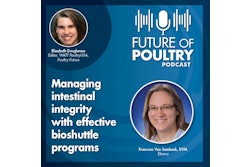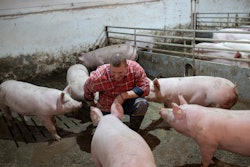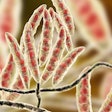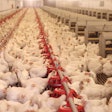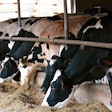The British Columbia (B.C.), Canada, government is building a new plant and animal health center to keep people safe by stopping diseases such as avian influenza before they spread, protecting British Columbia’s food, farmers, animals and communities.
“B.C. farmers, producers and processors rely on fast, accurate testing to keep their animals healthy and their operations running smoothly,” said Lana Popham, Minister of Agriculture and Food. “This new center will help producers prevent and respond to disease threats, protect our food supply and support public health. This is a forward-looking investment that will strengthen B.C.’s agriculture sector and safeguard food security for generations to come.”
The new plant and animal health center will be the backbone of B.C.’s food safety system, helping farmers and veterinarians quickly detect and respond to animal and plant diseases that could threaten animal safety, food supply and public health.
“All farmers and ranchers in the province rely on the excellent veterinary and diagnostic work done at the plant and animal health center,” said Jennifer Woike, president, BC Agriculture Council. “Building a new and updated center is an extraordinary commitment to ensure the continued health of livestock and crops and, by extension, the health of all British Columbians.”
The current center suffered extensive damages during the 2021 floods in Abbotsford and needs to be replaced to meet the increasing demands for testing. The center handles more than 10,000 cases annually from farmers and organizations, helping to detect, monitor and prevent diseases such as avian influenza, West Nile virus and chronic wasting disease. Staff at the lab conduct, on average, 100,000 tests annually.
“A new state-of-the-art plant and animal health center will help strengthen public health by detecting diseases, such as avian influenza before they reach people,” said Josie Osborne, Minister of Health. “It will also ensure safer food on our tables by monitoring food sources, tracking emerging threats and guiding swift responses. This early warning system supports a healthier, more resilient food supply for everyone.”
The new center will be at 34252 King Rd., next to the University of Fraser Valley’s Abbotsford campus, just off Highway 1. It will replace the 30-year-old facility and be built to modern specifications to provide updated testing for farmers and better protect public health.
“As the agricultural capital of B.C., the City of Abbotsford understands the importance of protecting the health of our animals, plants and crops,” said Ross Siemens, mayor of Abbotsford. “This plant and animal health center will continue providing farmers with support for keeping their farms healthy, safeguarding their livelihoods and strengthening food security across B.C. We are grateful to the province for maintaining Abbotsford as the home for this important facility.”
The province has approved up to CAD496 million (US$353 million) to buy the land, build the new facility and buy equipment. Construction is expected to begin in 2027 with enhanced services available to B.C. producers by 2032.
“To successfully manage biosecurity risks, access to timely information and diagnostic testing is needed,” said Brad Driediger, president, BC Poultry Association and president, BC Chicken Growers’ Association. “British Columbia’s poultry sector, which contributes to the food security of our communities and supports thousands of jobs, welcomes the construction of a new plant and animal health center.”
The center is one of Western Canada’s leading full-service veterinary laboratories and plays a key role in the province’s veterinary, diagnostic and food safety programs that support healthy farms and public health.

